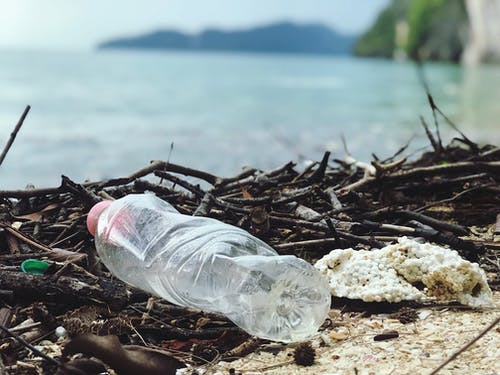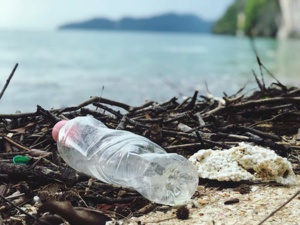Dailycsr.com – 26 July 2021 – Mike Witt is a “Dow Corporate Director” for “Carbon, Circularity and Safer Materials” who recalled the “bottle bill” passed by the government in an attempt to “reduce roadside litter” which was passed when he was six. He remarked that following the bill, he saw an opportunity to “earn” his pocket money through the “discarded aluminum soda cans and bottles”. He went around the town to collect these discarded materials and collected the deposit money by returning them.
Dow has an aim to “transition to a circular economy” whereby bringing in changes in “market, governmental and personal levels” will create the difference in line with “climate change” related goals as well as the natural resource preservation, writes Witt. Creating infrastructure for recycling solutions could be the key to a “cleaner and more sustainable planet”. Therefore, recycling of plastic is a vital concern in curbing the wastage and protecting the climate.
However, before addressing the issue of “plastic recycling”, Witt feels one needs to look into “plastic production” and the question that he asks is: “why do we need it?” Witt continues by adding:
“Plastics are an essential part of our journey toward a lower carbon future. They keep our food from spoiling, help us transport goods with less energy than other packaging materials, and make our automobiles lighter and more energy efficient. In fact, the environmental cost of plastic alternatives such as paper, steel and glass are three to four times higher than plastic. Additionally, replacing plastics with other materials would increase the overall weight and volume of waste, requiring more waste infrastructure and landfills”.
Nevertheless, in spite of these benefits of plastics, they aren’t enough recycling facilities resulting in the plastics to circulate within the environment. We need to do “more than incremental change” if we wish to improve recovery, claimed Witt. The road to recovery lies in investing to scale up recycling processes and innovating products besides inculcating the recovery “value of plastic” with circular economy in mind right at the production level.
Witt is of the opinion that recycling is a team effort and no company can alone achieve it as the efforts and the values need to run deep even within the supply chain. Dow works with a “diverse network of experts” to address the issue from multiple angles. Giving some of its examples, Witt added:
Dow has an aim to “transition to a circular economy” whereby bringing in changes in “market, governmental and personal levels” will create the difference in line with “climate change” related goals as well as the natural resource preservation, writes Witt. Creating infrastructure for recycling solutions could be the key to a “cleaner and more sustainable planet”. Therefore, recycling of plastic is a vital concern in curbing the wastage and protecting the climate.
However, before addressing the issue of “plastic recycling”, Witt feels one needs to look into “plastic production” and the question that he asks is: “why do we need it?” Witt continues by adding:
“Plastics are an essential part of our journey toward a lower carbon future. They keep our food from spoiling, help us transport goods with less energy than other packaging materials, and make our automobiles lighter and more energy efficient. In fact, the environmental cost of plastic alternatives such as paper, steel and glass are three to four times higher than plastic. Additionally, replacing plastics with other materials would increase the overall weight and volume of waste, requiring more waste infrastructure and landfills”.
Nevertheless, in spite of these benefits of plastics, they aren’t enough recycling facilities resulting in the plastics to circulate within the environment. We need to do “more than incremental change” if we wish to improve recovery, claimed Witt. The road to recovery lies in investing to scale up recycling processes and innovating products besides inculcating the recovery “value of plastic” with circular economy in mind right at the production level.
Witt is of the opinion that recycling is a team effort and no company can alone achieve it as the efforts and the values need to run deep even within the supply chain. Dow works with a “diverse network of experts” to address the issue from multiple angles. Giving some of its examples, Witt added:
- “Investing in recycling, recyclability and infrastructure that will help the world recycle far more than we do today, such as:
- “In the past year, Dow has commercialized a global offering of post-consumer recycled (PCR) plastic resins for use in certain packaging applications.
- “We’ve established a partnership in Europe with Fuenix Ecogy Group for the supply of a new feedstock made from recycled plastic waste, with the promise to produce new Dow polymers from that waste.
- “We're also researching and developing the use of renewable feedstocks for plastics, which is the aim of our partnership with UPM Biofuels in Europe.
- “And, by 2025 our partners at the Alliance to End Plastic Waste will demonstrate zero plastic waste in multiple cities and divert tons of plastic waste through Alliance projects in more than 100 at-risk cities.
- “Design for recyclability to enable products to be recyclable. An important step to increasing recycling rates is making products easier to recycle. For example, we have worked with multiple brands, such as Kashi, Amorepacific, Liby and others, to deliver recyclable packaging solutions for products such as granola, beauty care, laundry pods and more”.
References:
3blmedia.com


 Turning Trash Into Treasure Begins At Production
Turning Trash Into Treasure Begins At Production





 Companies
Companies